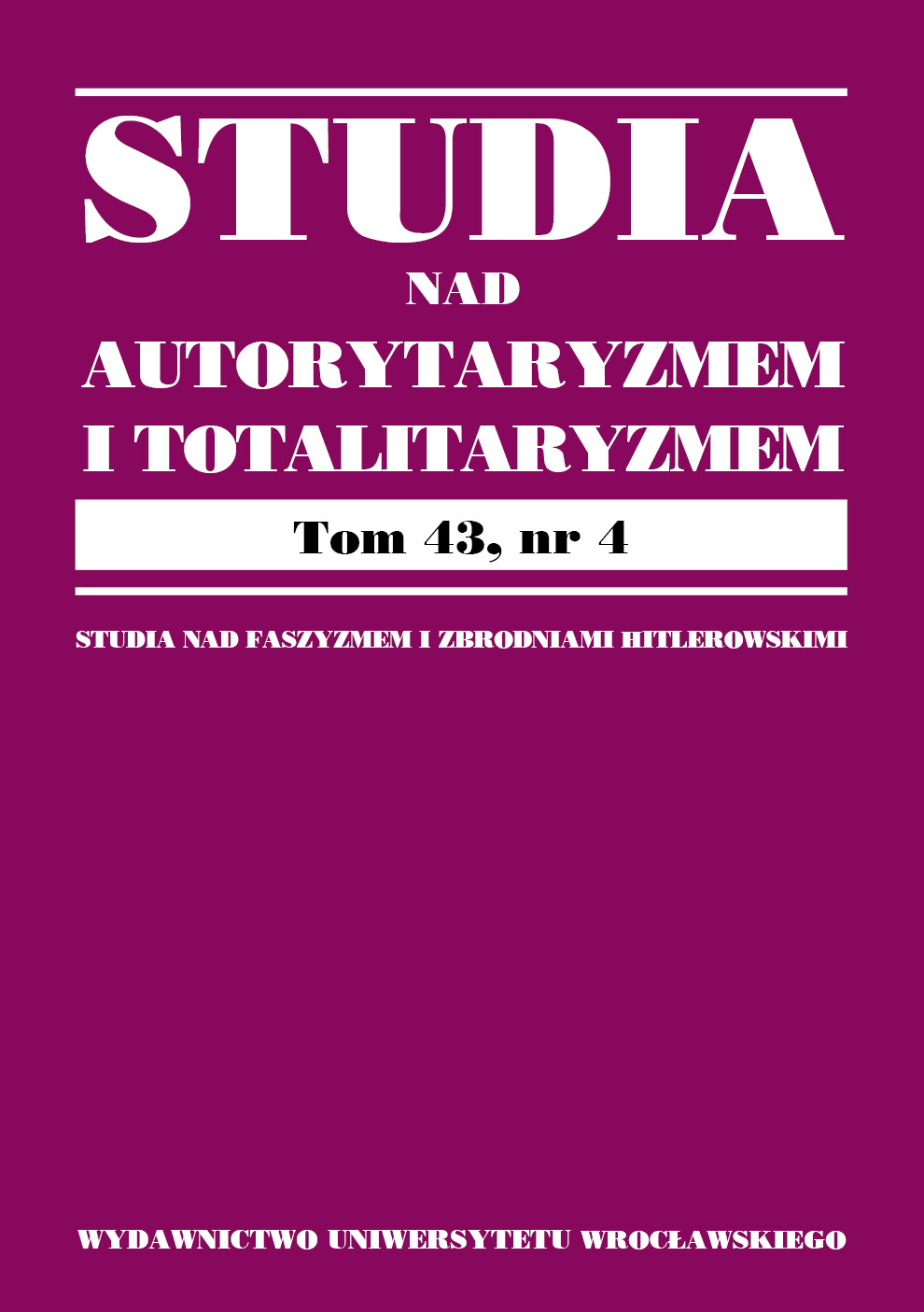

Artykuły

German lawyers jointly supported the National Socialist authorities, assuming that the law was Hitler’s will, resulting from the new criminal law being introduced, which violated the principles of nullum crimen sine lege and nulla poena sine lege. Judges of special courts (Sondergerichte) in the Third Reich applied criminal law according to a “healthy national sense” (das gesunde Volksempfinden), which usually meant heavy penalties, contrary to the elementary sense of justice. It was adopted as a rule that a crime is not only what is forbidden by regulations, but also everything that the authorities have not consented to. For any behaviour, even if not prohibited by law, the judges could sentence defendants to draconian punishments, at their “national discretion.” Law professors justified the lawlessness created in the Third Reich by claiming that it was a rule of law (Rechtsstaat). The criminal law for Poles and Jews of 1941 provided for the death penalty for all manifestations of “hostile attitude” towards the German occupier. Polish forced labourers in the Reich were punished with death for violations of discipline and disobedience to the German oppressors. Poles displaced from occupied Poland were assigned to work in enterprises and farms in the Reich. The special court in Breslau sentenced to death a Pole who defended his pregnant beloved woman, forced to work beyond her strength and abused by the German housewife, as well as the unfortunate woman herself. The same court sentenced a Pole to death for trying to protect his 13-year-old son from a German farmer, who was forcing the child to perform work he was physically unable to carry out. Special-court judges continued their professional careers in West Germany after the war and did not bear any responsibility for their crimes.